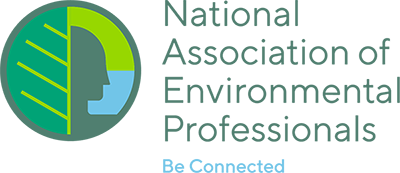|
Session C1.1
Port Everglades Environmental Program Update and Deepening Project Interagency Working Group
Erik Neugaard
9:30 – 10:00 AM ET
| About the Presentation |
|
In 2020, the Port Everglades Environmental Stewardship Program was awarded the NAEP Environmental Excellence Award, and the Environmental Program Manager made a presentation about the environmental stewardship program at the 2020 NAEP Virtual Annual Conference. This presentation will provide a brief update about environmental compliance and stewardship initiatives at Port Everglades; but will focus on the significant success of an Interagency Working Group that was established for the Port Everglades Harbor Navigation Improvement Project.
A bus tour of the Port Everglades Environmental Program will be provided on Thursday.
|
| About the Speaker |
|
TBD
|
Session C1.2
The Power and Importance of Awe in Transport and Health
Ron Deverman, CEP
10:00 – 10:30 AM ET
| About the Presentation |
|
Author Tony Hiss, who writes about Deep Travel in his insightful book, In Motion: The Experience of Travel, calls experiencing Deep Travel as a different way of being awake. He believes moments of Deep Travel can bring us fully into a landscape transformed to refresh and enrich us as we journey within our mode of transport, to bring us ultimately into a state of awe. Hiss also emphasizes, as Rachel Carson did in her book A Sense of Wonder, that our instinct for what is beautiful and awe-inspiring dims as we reach adulthood. He stresses the importance of keeping alive our inborn sense of wonder and focusing on re-connecting, as we travel, with what is familiar and what is remarkable in our in motion lives.
Recent health research has shown a correlation between heightened moments of travel experience and positive health effects. Gretchen Reynolds, in a recent New York Times article, noted that individuals who have reported feeling awestruck, have lower levels of interleukin-6 which is linked to inflammation. So the more remarkable the travel experience, in other words, the more awe we feel, could in fact reduce the risk of heart disease and stroke. Dr. Kelter, a professor of psychology at Berkeley, has noted that the human nervous system is wired to quiet the voice of self-interest, and to feel a sense of reverence and awe for the collective. In his book, Born to Be Good, he notes prototypical experiences of awe, involve perceived vastness, anything that is experienced as much larger than the self such as a grand travel experience; and it is these heightened travel experiences that can transport us to a new sense of being. In this paper/presentation, the author first establishes the links between heightened moments of Deep Travel and our sense of well-being and wonder. Second, the author provides health research examples that correlate our heightened state of remarkable travel experiences to life enduring, positive health effects. The more awe in our lives the more we are lifted out of ourselves, to the unfamiliar, the unexplored, the amazing, that bring us wonder.
To conclude, the author offers through images, spoken word, and indigenous music moments of Deep Travel experiences for example, a walk in the Hoh Rain Forest; a summit climb to the top of Mt. Rainier; traveling 180 mph on Eurostar Rail through the Chunnel to Paris to transport the audience to the place of wonder and bring us all closer to a new life discipline of awe-struck as we travel healthier.
|
| About the Speaker |
|

Ron Deverman, CEP
Vice President National Environmental Planning Leader
STV
Ron is Vice-President and National Environmental Planning Leader for STV, a national planning, engineering, and architecture firm. Ron has over 35-years-experience managing NEPA environmental impact assessment projects for transportation infrastructure improvements, such as transit, passenger and freight rail, highways, and bridges, with special expertise in community impact assessment, cumulative effects analysis, and other federal environmental regulations. Ron is a Past President of NAEP and IAEP and he is the current Chair of NAEP’s Leadership Development Committee. Ron is a Certified Environmental Professional by Eminence and a NAEP Fellow for his exemplary service and over 30-year commitment to NAEP and the environmental professions. He is a Board Trustee of the Academy of Board-Certified Environmental Professionals (ABCEP), serving as the Awards Task Force Chair and actively participating in the ABCEP Mentor-Mentee program. Ron is also an Adjunct Professor at Northwestern University teaching a Masters’ course in NEPA and Context Sensitive Solutions. He is a published poet and has spoken nationally and internationally on many subjects, including key competencies for environmental professionals, environmental stewardship, equity, environmental justice, and the public health impacts and benefits of our transportation choices. Ron was a founding Board Director of the International Professional Association for Transport & Health (IPATH), is still active in IPATH, and he was recently appointed to the Transformative Leadership Advisory Council for the George Washington University School of Business. Ron comes from generations of farmers in Illinois’ heartland and farmed for a living while attending college. Ron’s education includes a BS in Civil Engineering from the University of Illinois in Urbana, a MA in English from the University of Illinois in Springfield, and post-graduate studies in NEPA and related environmental studies.
|
Session C1.3
Adapt to Transform: What COVID-19 Teaches Us About Resilience
Breanna Gribble, ENV SP, WEDG, WELL AP
10:30 – 11:00 AM ET
| About the Presentation |
|
The COVID-19 pandemic has stress-tested the disaster management cycle. While current convention calls practitioners to ‘plan, respond, recover, and mitigate’, the pandemic disrupted the transition from ‘response’ to ‘recovery’, leaving communities vacillating between these two phases while infection rates fluctuated. COVID-19 is different from other disasters - it’s prolonged, global, polarizing, and uncertain. But like other disasters, it catalyzes resilience capacity building. As we reflect on the profound political, social, and economic disruptions, there are opportunities to examine the framework through which we have historically managed disasters.
For this presentation, we contemplate whether the disaster management cycle is the most suitable framework to enhance resilience to disasters. We consider an alternative disaster management cycle that reflects on lessons learned during the COVID-19 pandemic and discuss its application to natural hazards including climate change. We introduce the concept of ‘adaptive resilience: the ability to implement immediate changes that minimize the impacts of disruptive forces, whether a pandemic or a natural disaster while working to transform the built environment using systems thinking. Planners and engineers have an extraordinary capacity to shape a resilient future for urban infrastructure systems, but to do so, they must seek to transform the urban landscape by adapting to the changing risk landscape. A critical evaluation of the disaster management cycle can shed some light on ways to evolve and enhance resilience to future disruptions.
|
| About the Speaker |
|
 Breanna Gribble, CHMM, ENV SP, WEDG, WELL AP Breanna Gribble, CHMM, ENV SP, WEDG, WELL AP
Senior Resilience Manager
STV
Breanna Gribble, CHMM, ENV SP, WEDG, WELL AP, is STV’s first Resilience Manager with over 11 years of experience in a variety of facility and infrastructure improvement projects in the New York metropolitan area. She is fascinated by how cities form strategy to cope with the climate crisis, which was the focus of her master’s thesis at New York University last year. Her expertise includes hazardous materials investigation and management, sustainable design, and resilience. As a resource to her fellow architects and engineers, Gribble advises on the project-level for flood mitigation projects, disseminating current research and standards in the industry, hosts and facilitates internal educational events, and collaborates with project teams to apply best practices and integrate innovative technologies into design solutions. As a self-proclaimed “plan-gineer”, Gribble advocates for resilience thinking to be applied to all complex urban infrastructure challenges.
|
Back to Schedule
|


